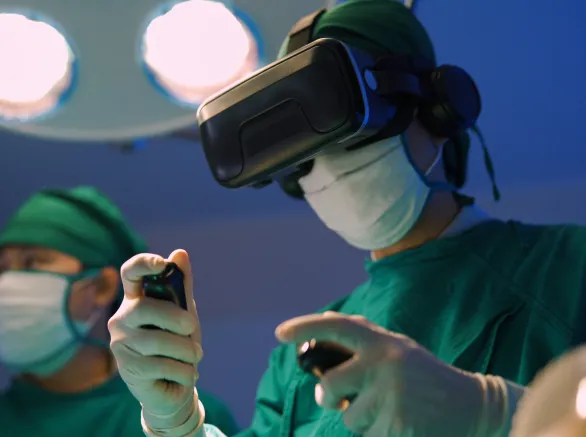July 29, 2025
Expansion of ISO/IEC 17025:2017 accreditation provides third-party validation of biomedical and medical device test methods
Exponent has expanded the scope of its ISO/IEC 17025:2017 accreditation at its facility in Philadelphia. The Philadelphia facility has added abrasive conditioning for orthopedic devices, finite element analysis (FEA) for determining worst-cases in implant families, and assessments of particulate matter using USP 788. Additionally, the lab continues to expand the capabilities in coating evaluation, condoms testing, and packaging testing on its scope of accreditation (A2LA, Certificate #2561.01). A2LA is an internationally recognized third-party accreditation body that performs unbiased, objective assessments of participating labs' quality systems.
"These methods are vital tools that help us assist our clients with their toughest technical regulatory issues and help them confidently move efficiently through the design and development process."
— Ryan Siskey, M.S., Corporate Vice President and Principal, Biomedical Engineering & Sciences
The results from these tests provide clients with critical data that conforms to the rigorous levels of quality assurance required by ISO/IEC 17025. An audit to these requirements allows Exponent to demonstrate that its methods are developed and validated to state-of-the-art, consensus-based, industry standard test methods and conducted using fully traceable equipment.
"These new methods represent just some of the continued areas of growth for our Philadelphia lab," said Ryan Siskey, M.S., a corporate vice president and principal in Exponent's Biomedical Engineering and Sciences practice. "These methods are vital tools that help us assist our clients with their toughest technical regulatory issues and help them confidently move efficiently through the design and development process. A dedicated team of more than 20 is responsible for the maintenance and expansion our systems and methods."
Test methods covered by Exponent's new scope of accreditation
Exponent's Philadelphia laboratory's accreditation now covers assessments of abrasive conditioning for orthopedic and other biomedical implants, in accordance with PL_SOP.00452, used to promote implant integration and mitigate potential contamination and inflammatory responses, along with a wide array of biomaterials testing, including nitinol tensile testing (ASTM F2516) and stereological evaluation of porous coatings on medical implants (ASTM F1854).
The Philadelphia laboratory's accreditation extends to worst-case FEA for surgical implants, in accordance with PL_SOP.004533, allowing the prediction of stress distribution in and around implant contact areas, and particle counting associated with cardiovascular device characterization and USP 788, critical for identifying and characterizing particulate matter, which, when present, can enter the bloodstream and cause adverse cardiac events.
The Philadelphia laboratory's accreditation additionally covers a range of device-specific tests, such as the testing of natural rubber latex condoms, in accordance with ASTM D3492, including for determination of tensile strength, burst pressure, burst volume, and leakage.
The Philadelphia laboratory's accreditation also covers seal strength for packaging testing, in accordance with ASTM F88, which is instrumental in assessments of medical device packaging to ensure strong, reliable seals and to prevent possible contamination for applications where maintaining sterility is essential.
A summary of the latest accreditations includes the following:
Test Type | Test Method |
|---|---|
| Abrasive Conditioning for Orthopedic Implants | PL_SOP.00452* |
| Condom Testing | ASTM D3492 |
| Worst-Case FEA for Surgical Implants | PL_SOP.00453* |
| Assessments of Particulate Matter | USP 788 |
| Stereological Evaluation of Porous Coatings on Medical Implants | ASTM F1854 |
| Seal Strength Testing for Medical Device Packaging | ASTM F88 |
*In-house method
Our Philadelphia laboratory offers cutting-edge testing capabilities in a wide range of areas. Expanding our range of medical device and biomaterials testing enables us to answer challenging questions that arise during product development and validation, root-cause and corrective action investigations, and quality control assessments.

